This story is published in YFile’s New Faces feature issue 2023. Every September, YFile introduces and welcomes those joining the York University community, and those with new appointments.
The Faculty of Health welcomes 12 new faculty members this fall.
“We are delighted to welcome an outstanding group of new faculty members into the Faculty of Health. They bring a diverse set of experiences and skills in education, research and practice, and will contribute to our role as leaders and partners for a healthy and just world,” says Faculty of Health Dean David Peters. “I am looking forward to the ways they will amplify our research impact, expand our academic offerings, enrich the student experience and advance social justice and health equity.”
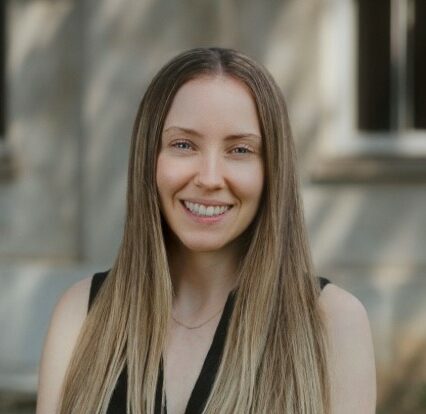
Faith Amis
Faith Amis joins the School of Nursing as an assistant professor. She received her bachelor of science in nursing from McMaster University in 2015, graduating summa cum laude, and went on to complete her master of international public health at the University of Liverpool. She gained clinical experience working as a registered nurse with the Nurse Family Partnership at Hamilton Public Health, Labour and Delivery, and Post-partum Units at Brantford Community Health Care System, as well as Labour and Delivery and Maternal Fetal Medicine at McMaster University Medical Centre.
In academia, Amis held a position as a sessional faculty member at McMaster University within the School of Nursing for several years. An expert in maternal child discipline, she is strongly committed to student success and nursing excellence in both clinical and academic settings, using transformational teaching strategies that promote the integration of evidence-based theory and relational, reflective practice.
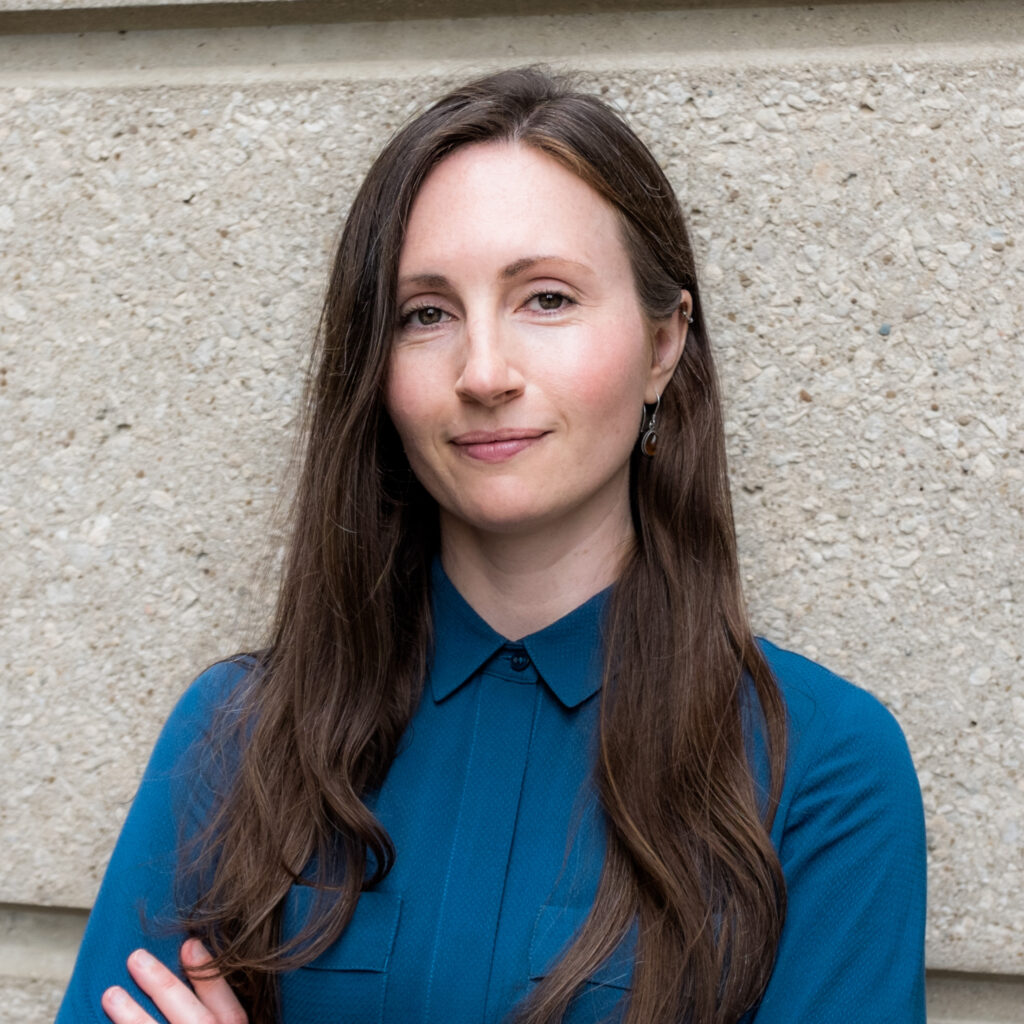
Madison Aitken
Madison Aitken joins the Department of Psychology as an assistant professor in the clinical developmental psychology area. She completed a PhD in school and clinical child psychology at the Ontario Institute for Studies in Education, University of Toronto, and a postdoctoral fellowship at the Centre for Addiction & Mental Health (CAMH) in Toronto. Prior to coming to York, she was an assistant professor in the Department of Psychiatry at the University of Toronto and a scientist in the Cundill Centre for Child & Youth Depression at CAMH, where she remains a collaborator scientist.
Her research focuses on improving youth psychotherapy outcomes by understanding how evidence-based therapies bring about change, and by testing new interventions targeting factors that predict poor treatment response. She is also interested in innovative approaches to increasing the real-world relevance of psychotherapy outcome measures. Her research is funded by the Canadian Institutes of Health Research, the Social Sciences & Humanities Research Council (SSHRC), and the Cundill Centre for Child & Youth Depression.

Robin Coatsworth-Puspoky
Robin Coatsworth-Puspoky joins the School of Nursing as an assistant professor. She completed her PhD at the University of Alberta, Faculty of Nursing, which focused on understanding older persons with multiple chronic conditions’ experiences of unplanned readmission to hospital within 30 days of discharge. Her program of research focuses on learning about the unplanned readmission experiences of older Canadian people in rural and urban settings.
She is interested in developing and evaluating nursing interventions that improve older persons’ unplanned readmission and hospital experiences, and enhance older persons’ safety, well-being, and care at home and in the hospital (such as gentle, persuasive approaches in dementia care). Coatsworth-Puspoky is also interested in consumer/survivor experiences in nurse-client and peer support relationships, and how these relationships influence health and healing. Her clinical background is geriatric mental health.

Roya Haghiri-Vijeh
Roya Haghiri-Vijeh (she/her/hers) joins York University as an assistant professor in the School of Nursing. Haghiri-Vijehis is an educator and researcher on the treaty lands and the territory of the Mississaugas of the Credit First Nation. As a first-generation settler and an uninvited guest on this land, she is grateful for the opportunity to live and work here.
Haghiri-Vijeh’s scholarship, underpinned by Gadamerian Hermeneutics, interpretive phenomenology, intersectionality and mixed methodologies, is focused on underserved populations and individuals who identify at the intersection of identities. In her PhD studies, she focused on experiences of 2SLGBTQIA+ migrants with nurses and other health and social care professionals in Canada. She is currently engaged in a Natural Sciences & Engineering Research Council-funded research project on online sources for transgender, non-binary, and intersex children and youth. Moreover, Haghiri-Vijeh’s program of research is focused to enhance and advance the health and social care needs of 2SLGBTQIA+ migrants, youth and older adults.
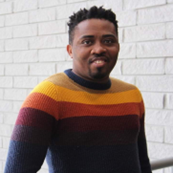
Michael Kalu
Michael Kalu joins the School of Kinesiology & Health Science as an assistant professor of rehabilitation therapy: clinical treatment and clinical care. He gained interdisciplinary expertise by training as a physiotherapist (bachelor of medical rehabilitation in physiotherapy from the University of Nigeria), a social gerontologist (master of science in gerontology from the University of Southampton) and a rehabilitation scientist (master of science in rehabilitation science from Queen’s University and PhD from McMaster University), and furthered his research as a postdoctoral Fellow at Dalhousie University.
Kalu’s research explores the sociocultural considerations of older adults’ mobility to co-develop mobility-adapted physical activity for “apparently healthy” Black older adults or those with neuromuscular conditions using technology (like artificial intelligence) collected mobility data. His multidisciplinary research focuses on aspects of mobility assessment, prevention and intervention among older adults across various care settings, from hospital-to-home transition to community and long-term care facilities.
He continues to maintain an interest in exploring strategies (e.g. education and practice frameworks) to enhance the transdisciplinary approach to older adult social/functional health grounded in physiotherapy practice philosophies.

Tieghan Killackey
Tieghan Killackey joins York University as an assistant professor in the School of Nursing. She is a registered nurse and an adjunct scientist at SickKids Research Institute. Killackey’s clinical background is in cardiovascular nursing and she has a specific interest in improving patient and family experiences with transitions across the lifespan. She received her PhD from Lawrence S. Bloomberg Faculty of Nursing at the University of Toronto and completed postdoctoral training in the Department of Child Health Evaluative Sciences at the SickKids Research Institute.
Killackey’s research uses qualitative and mixed methods to improve patient and family experiences within chronic illness care, with specific emphasis on enhancing patient autonomy and supporting self-management using technology. Killackey holds a certificate in Advanced Training in Qualitative Health Research Methodology and specialized training in bioethics from the Joint Centre for Bioethics at the University of Toronto in addition to being certified as a cardiovascular care nurse with the Canadian Nurses Association.
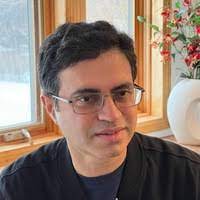
Vijay Mago
Vijay Mago joins the School of Health Policy & Management at York University as an associate professor with a specialization in health informatics and analytics. Before joining York, he worked as an associate professor and Faculty-based research Chair at Lakehead University. He received his PhD in computer science from Panjab University, India, and has worked as a postdoctoral Fellow at the IRMACS Centre at Simon Fraser University.
His current research interests include health informatics, text analysis, natural language processing, big data analytics, and modelling and simulation of complex health systems.
During the past six years, his research lab has received over $2 million in funding from SSHRC, the Natural Sciences & Engineering Research Council of Canada, MITACS, the Canada Revenue Agency, the Ontario Council on Articulation & Transfer as well as other industry partners. With his students and collaborators, he has published over 100 papers. Mago serves as an associate editor for the BMC Medical Informatics journal and is an active member of the Institute of Electrical & Electronics Engineers, the Association for Computing Machinery and the American Medical Informatics Association.
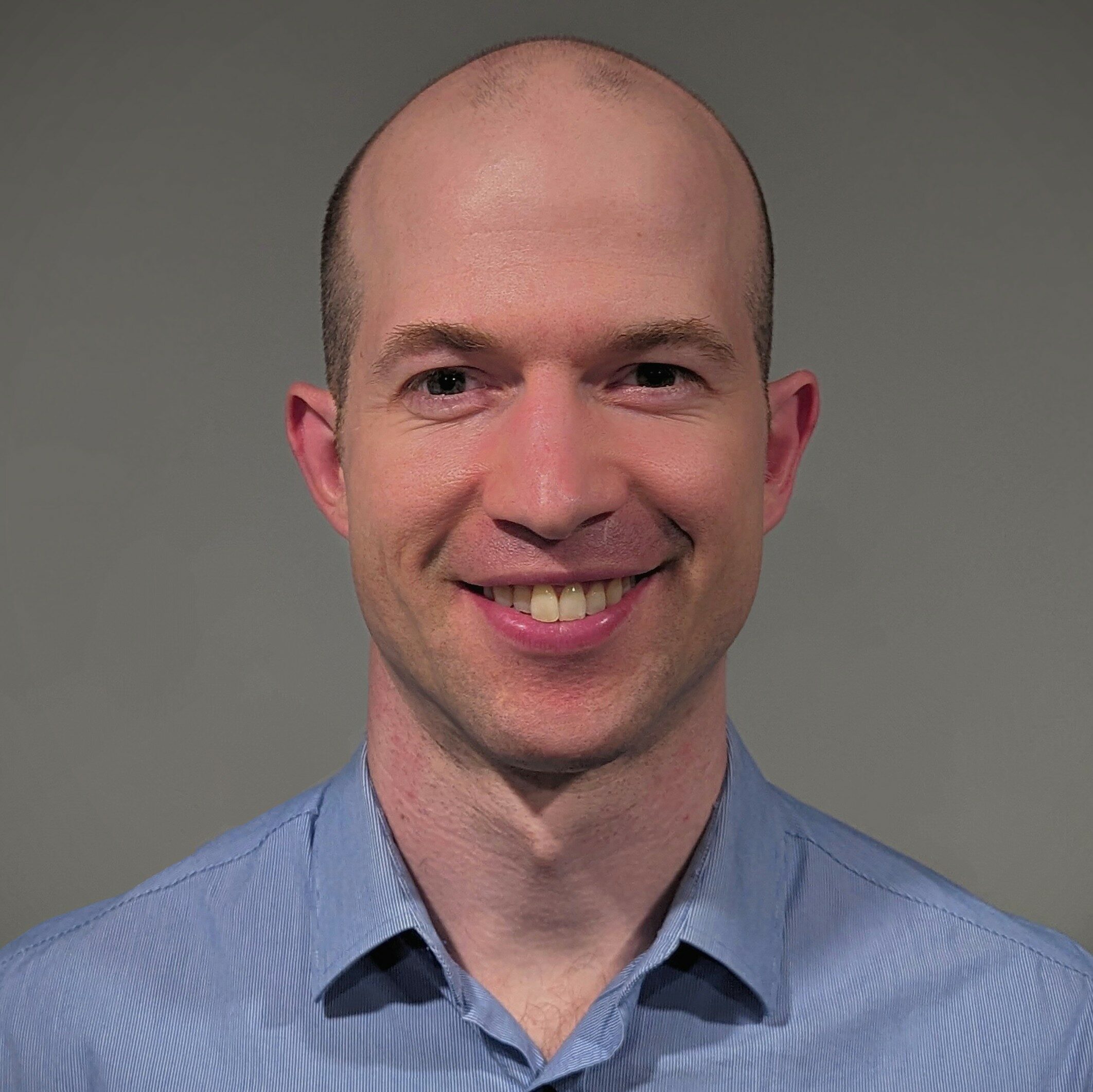
Michael Paris
Michael Paris joins the School of Kinesiology & Health Science as an assistant professor working in the areas of rehabilitation and human muscle performance. He completed his graduate work in the Department of Kinesiology at the University of Waterloo, followed by a postdoctoral fellowship in the School of Kinesiology at the University of Western Ontario.
His current research interests are focused on understanding the neuromuscular mechanisms controlling the generation of skeletal muscle force, with an emphasis on exploring age-related adaptations. He uses a variety of neurophysiological techniques to probe the human neuromuscular system under both voluntary and involuntary contractions. At York, his research program will broaden to explore exercise-related strategies to limit the progression of age-related weakness and loss of muscle mass.

Achala H. Rodrigo
Achala H. Rodrigo joins York University as an assistant professor in the Department of Psychology, in the area of clinical neuroscience and neuropsychology. He completed his doctoral training in clinical psychology at the University of Toronto Scarborough. His clinical training also includes a pre-doctoral residency in clinical neuropsychology at the London Clinical Psychology Residency Consortium and postdoctoral training in clinical neuropsychology at St. Joseph’s Healthcare Hamilton.
Using a multi-method approach that combines traditional neuropsychological assessment and novel neuroimaging techniques, his program of research examines the complex relationship between higher-order aspects of cognition and clinically relevant behavioural outcomes. His research also aims to elucidate mechanisms through which psychological distress may negatively impact cognitive function, and in turn lead to maladaptive behaviour.

Nicole Ventura
Nicole Ventura joins the School of Kinesiology & Health Science as an assistant professor (teaching stream). Previously, Ventura taught anatomy at McGill University in the Department of Anatomy and Cell Biology, Division of Anatomical Sciences. She led the Division of Anatomical Sciences for two years and held associate memberships with the Institute for Health Sciences Education and the Ingram School of Nursing at McGill.
Ventura has been engaged in health science education through the instruction of human anatomy for students in nursing, medicine, dentistry, physical and occupational therapy, and kinesiology programs. She received her graduate degrees from Queen’s University, with her background spanning across anatomy teaching and basic science research.
Ventura’s teaching approach engages students, bridging theory and practice in diverse classroom sizes. Her research interests are in educational scholarship, evaluating pedagogical innovations in interprofessional curricula, pre-mortem diagnostic imaging’s role in anatomical training and cadaver-based learning’s impact on health science education
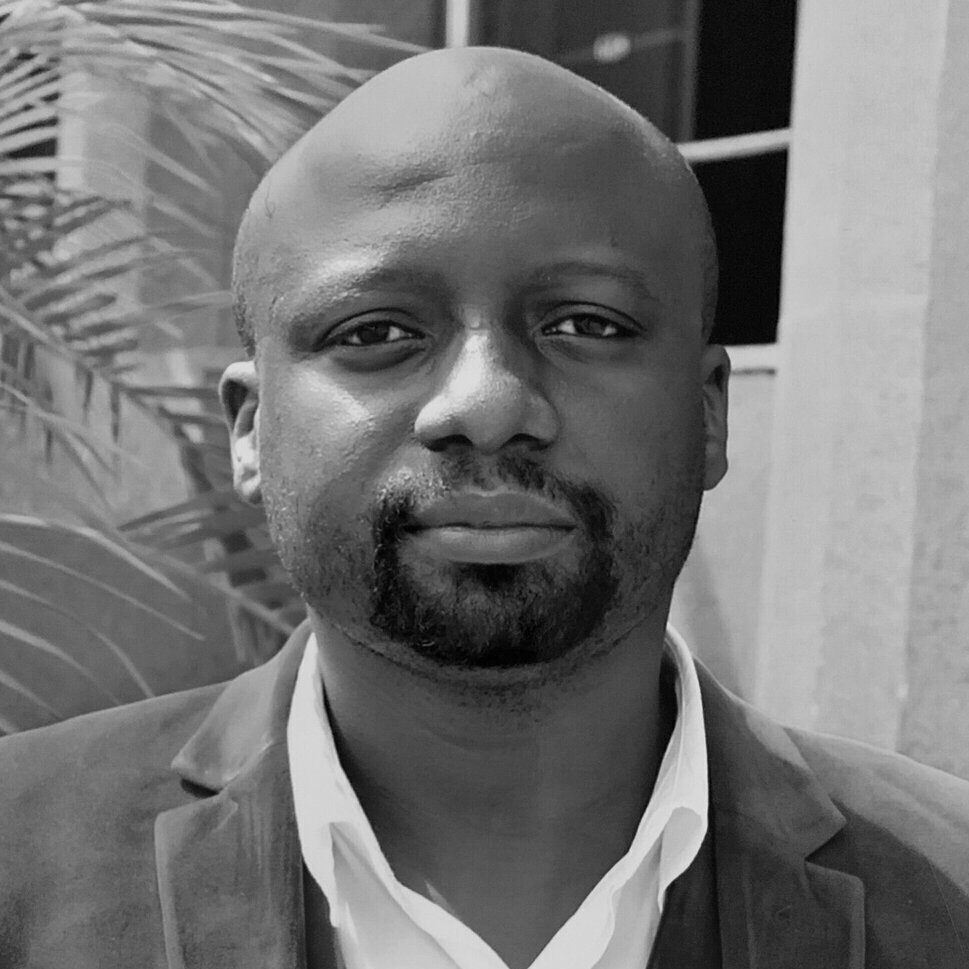
Benedict Weobong
Benedict Weobong joins York University as an associate professor in the School of Global Health. Prior to joining York, Weobong taught courses to both undergraduate and postgraduate students in social and behavioural sciences at the School of Public Health, University of Ghana.
Weobong is a global mental health epidemiologist and academic with over 14 years of experience. He has made considerable contributions in the field of global mental health, specifically in instrument development, describing the epidemiology of perinatal depression, mental health-care plans and behaviour change interventions. His work has been informed by the principles of global mental health along three strands, tied together through the innovative use of task-sharing strategies in low- and middle-income settings. Weobong has specific expertise in psychosocial treatment development and evaluation.
His current research laboratory holds three important activities: developing a step-up care intervention to treat depression and anxiety among adolescents in Ghana; evaluating the implementation of a routine health check-up program for adolescents; and building a critical mass of global mental health researchers through doctoral and postdoctoral training.

Lesley Zannella
Lesley Zannella joins the Department of Psychology as an assistant professor, teaching stream, in critical thinking, writing and communication. Prior to joining York, she was an assistant teaching professor at Arizona State University in the Department of Psychology in the area of law and behavioural science. While completing her PhD in psychological science at Toronto Metropolitan University, she also worked at their Centre for Excellence in Learning & Teaching.
Zannella’s research largely examines the reintegration experience of wrongfully convicted individuals, with a specific focus on the stigma that exonerees experience upon release. In the area of learning and teaching, her research focuses on student engagement and inclusive and flexible course design. Her teaching philosophy prioritizes universal design for learning principles through the pillars of flexibility, collaboration and reflection. Zannella’s research has been funded by the SSHRC and featured by the American Psychological Association.


